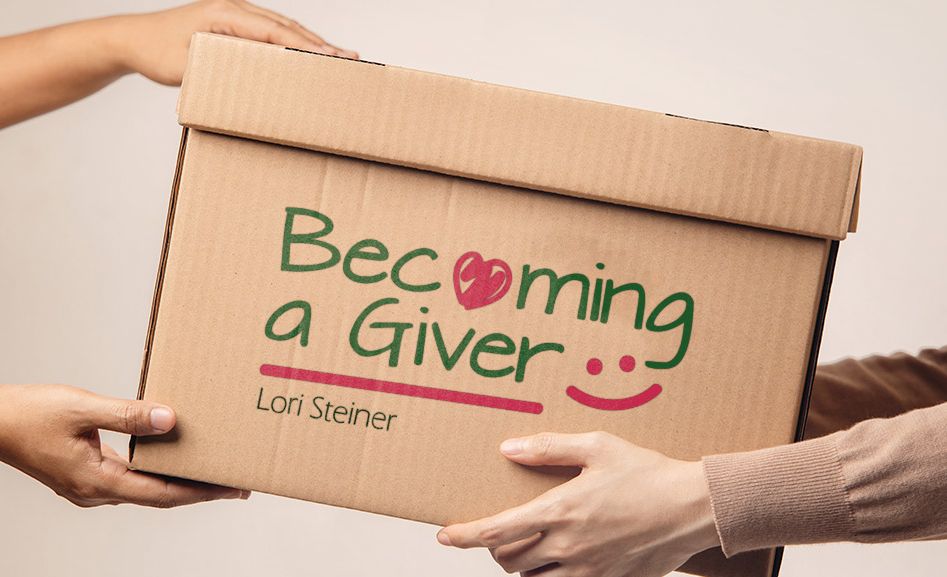
Failing for Success
Hashem is a loving Father in Heaven Who controls everything. That means that our failures come from Him too. So why should a loving parent want a child to fail?

In The Garden of Emuna, Rabbi Arush teaches that sometimes Hashem's Will is for us to fail, and that even our transgressions are His Will and for our very best. People ask how can this be and the answer Rabbi Arush gives is that the success would have been bad for us. It would have made us arrogant and think that we're big tzaddikim. Allow me to share such an experience I had recently.
Our synagogue in Teaneck has a Parent-Child learning program that takes place on Shabbat in the summers and after Shabbat in the winters. They put out a large spread of snacks for the kids like chips, pretzels, popcorn, and pizza. The kids and parents eat a little and hopefully spend time learning a little. I try to take my children by myself to these events each Shabbat.
After attending the program several times, I noticed I had a problem. I was spending way too much time with the snacks and not enough time reading to my children and talking about the Parsha (weekly Torah portion). This was despite having usually eaten a pretty filling Shabbat lunch. I certainly wasn't eating because I was hungry. It started to get really out of hand. I got to the point where I felt like I was gorging myself on popcorn and potato chips. As I took stock of this, I started praying to Hashem to help me not  stuff my face.
stuff my face.
My prayers seemed to no avail. I would thank Him for my failures but success wasn't coming. I'd ask Him to help avoid eating in the first place. Sometimes, I barely managed to do that but only with huge effort and exertion. I just couldn't seem to get any control over food in this situation. My Shabbat eating on Friday nights and lunch was also getting out of control. Mind you, you wouldn't see it if you looked at me, but at my worst, I only had one suit that fit me. And I was not even able to close the button or the clasp on it.
Relief came when Hashem taught me to start looking at the other side of the coin. Instead of eating, what was I supposed to be doing during those times? At the parent-child learning session, I was supposed to be a father focused on his children: listening, engaging with my children, being patient and kind. At the Shabbat meals, I needed to be interested in the others at the table, making conversation, helping my wife with the kids and the meal, etc.
Well, after taking stock of myself, I realized that I don't have those abilities on my own. I lack patience and understanding. I've trained myself to be on my phone instead of focusing on my kids. I'm more interested in having others listen to my “wisdom and experience” than in hearing their stories. So what would have happened if Hashem would have helped me to avoid eating and just do all those things I was supposed to be doing instead? It would have gone straight to my head! I would've thought I'm Father of the Year! I'd sit and scorn and judge all the other fathers if I noticed them lacking patience, being on their phones, etc. I'd think I'm the host with the most and on my way to perfect righteousness.
Failure to stop eating eventually helped me see that my real lack of power was also in doing what Hashem wanted me to be doing. So I started altering my prayer before Parent-Child learning. Now, I first say Thank You Hashem that I'm unable to stop eating for pleasure which is my will. Please help me not to do what I want to do, help me to do Your will instead. Please help me to do Your Will and be patient and kind and focused on my children.
Once I started praying this way, I started enjoying success on both fronts! I was able to not even start snacking in the first place, and I was able to start acting like a proper father! However, by forcing me to pray for help not only about what not to do, but also for help to do what I should do, the success didn't go to my head (I think). I realized that Hashem is the One keeping me from eating and giving me the power to do the right thing as well.
I have seen similar results using this prayer strategy for anger, sadness, and other character defects as well. Additionally, I find that these experiences have helped me more readily accept failure. My first instinct when I fail was always to be upset, but now Hashem has me catching myself more and reminding me that if I had a failure, it must mean the success would have been no good for me. This makes it easier to Thank Him for the failure and leaves me feeling more joyous throughout the day.












Tell us what you think!
Thank you for your comment!
It will be published after approval by the Editor.